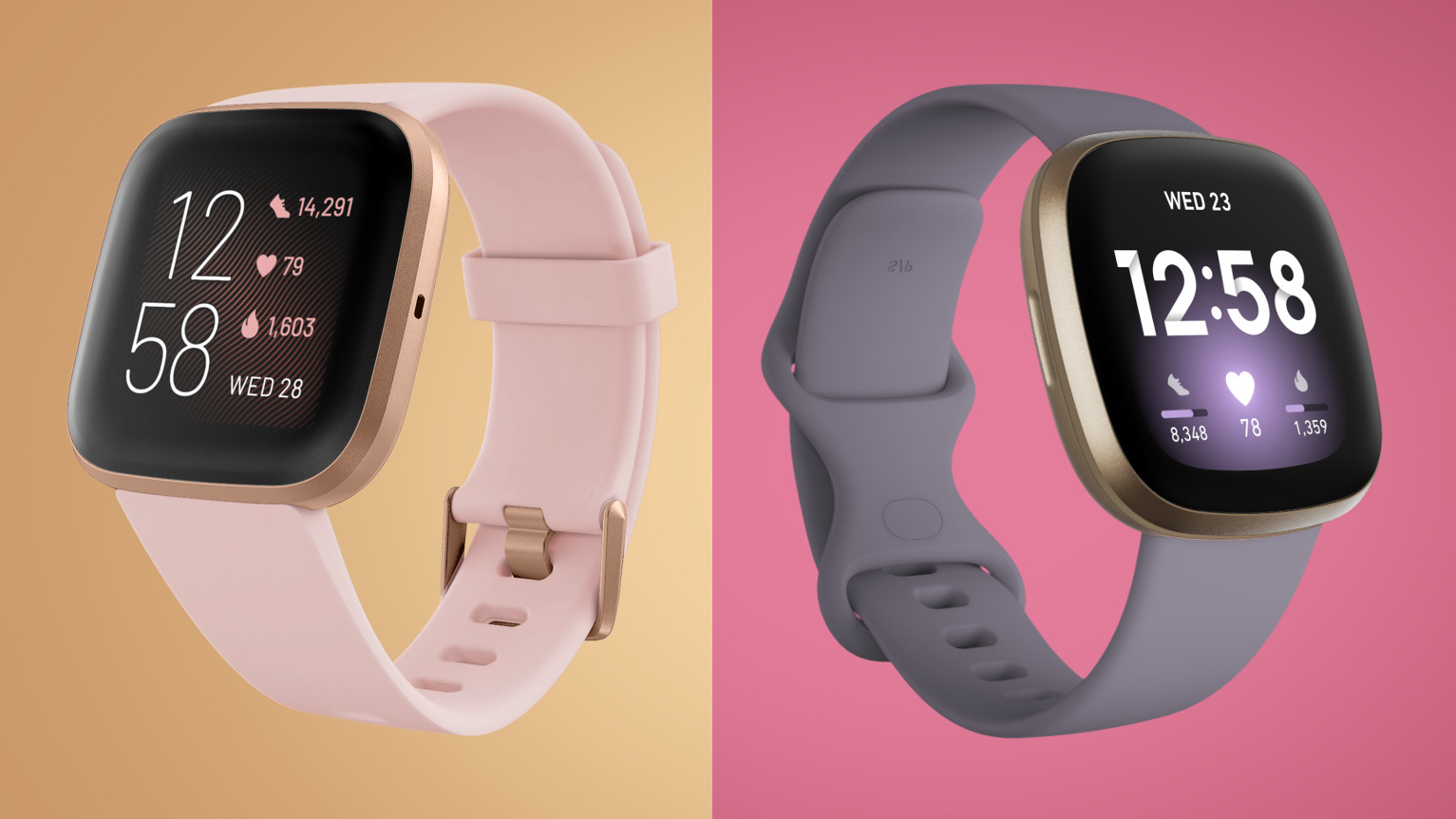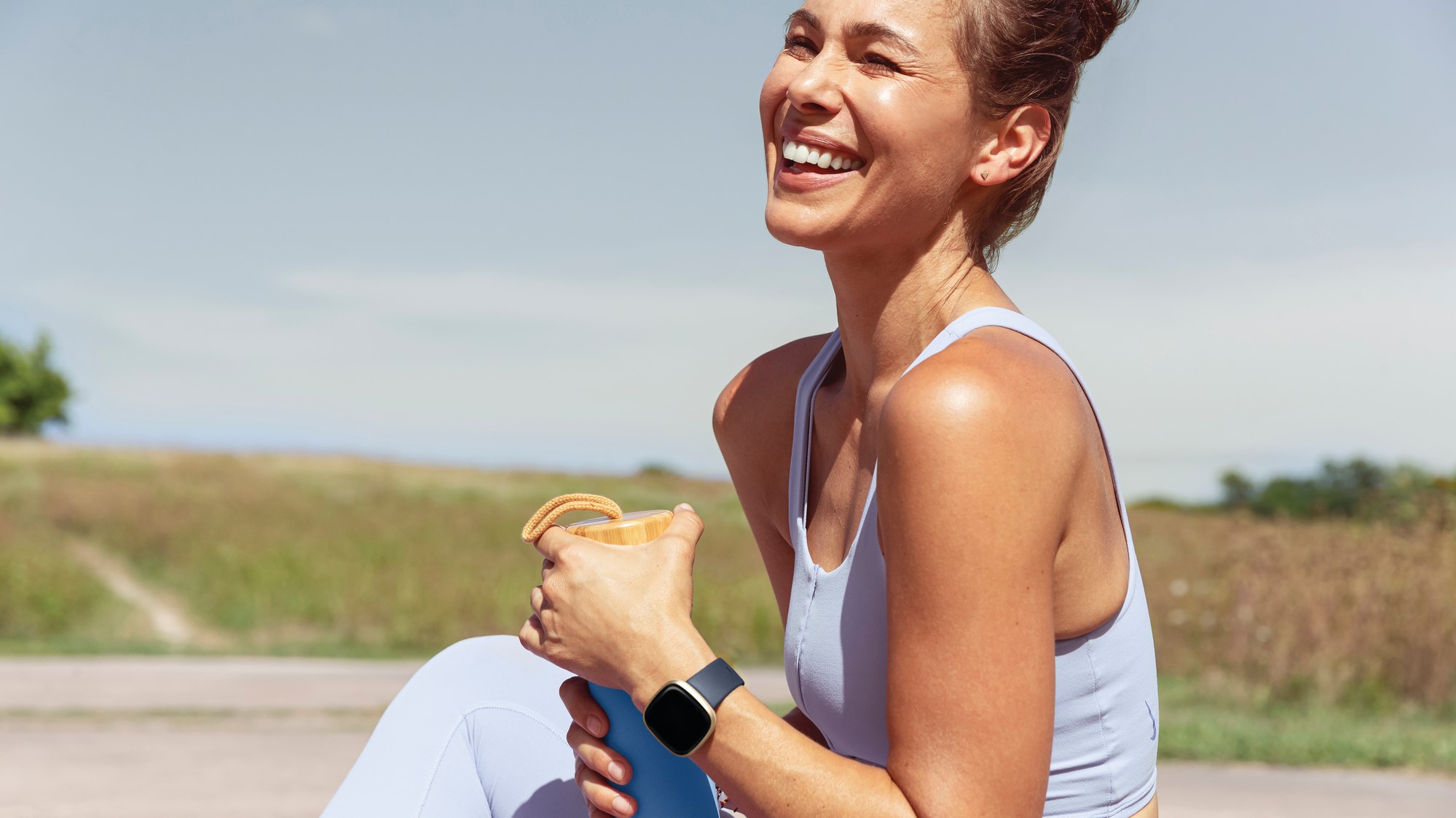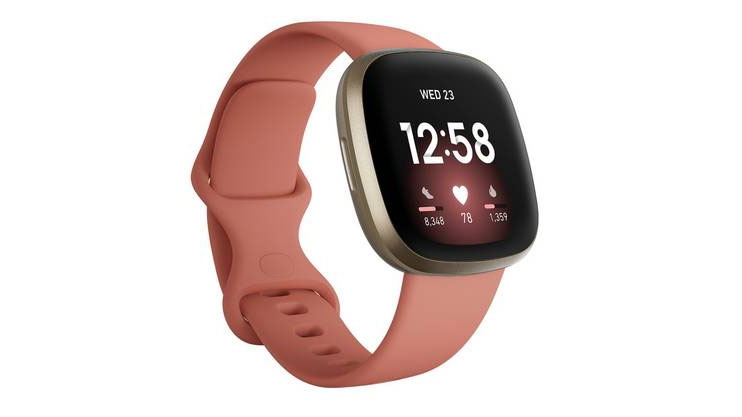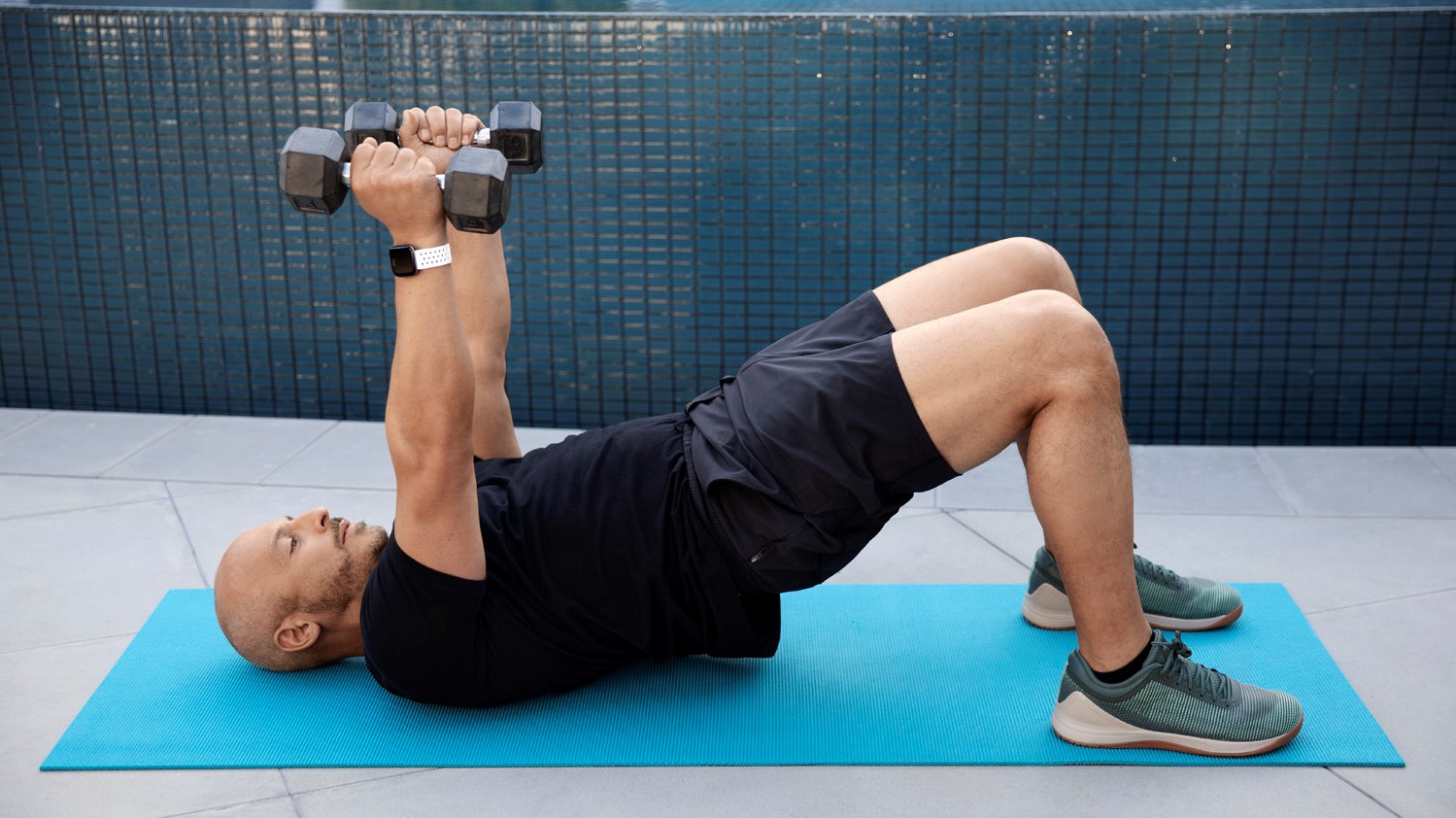
If you're thinking about buying a fitness tracker then you might be torn between the Fitbit Versa 2 vs the Fitbit Versa 3. Now the Fitbit Versa 4 is out, both previous devices are at very low prices, so it's a great time to get on board, especially considering the Versa 4 didn't score as highly as its previous iterations in our review. With their impressive suite of features, both Versas 2 and 3 are likely to be high on your list of potential options. We're here to help you make the right choice.
It's not simply a matter of the Versa 3 being the best Fitbit for everyone. The Versa 2 is a couple of years older but has stood the test of time well, and includes many of the features you'd expect to find on a modern smartwatch, including blood oxygen saturation (SpO2) tracking, music streaming, Amazon Alexa support, and the ability to make contactless payments via NFC. Check out our Fitbit Versa 2 review for more information here.
It also offers onboard music storage, which is something the newer Versa 3 lacks, and it's cheaper, which may be a deciding factor if you're on a limited budget.

Most importantly, the Versa 3 has its own onboard GPS, which gives more accurate results than the Versa 2, which has to piggyback on your phone for location tracking. If you're training for your first running event, that may be what tips the scales in the Versa 3's favor. You can read our full Fitbit Versa 3 review for a comprehensive breakdown of this feature-stuffed fitness watch.
Read on for all the most important differences between the two devices, so you can make the right choice.
Fitbit Versa 2 vs Fitbit Versa 3: price and availability
The Fitbit Versa 2 was released in September 2019, and is still available direct from Fitbit. It currently retails for $109.95 / £149.99 / AU$199.95, but there are still plenty of units around cheaper at third-party retailers.
The Versa 3 was released in September 2020. It costs a little more than the older model in the US and UK, and is substantially more expensive in Australia.
Get daily insight, inspiration and deals in your inbox
Sign up for breaking news, reviews, opinion, top tech deals, and more.
At the time of writing, the Versa 3 is available from Fitbit for $159.95 / £169.99 / AU$219.95, but you may be able to find a better price at a third-party store. We've rounded up the best deals below.
When you buy either watch, you can also sign up for a free trial of Fitbit Premium, which will give you additional features in the smartphone app, including access to more historical data, plus meditation sessions led by Deepak Chopra and additional workouts. The Versa 2 and the Versa 3 trials lasts six months, saving you around an additional $30 / £24 / AU$45 on top of the device.

Screen: AMOLED 35mm
Battery: 6+ day battery life
Music storage: 2.5GB
Speaker: No
GPS: No
Fitbit Versa 2 is an oldie, but a goldie. With a tactile button so popular it was brought back for the Versa 4, it also included memory for on-device songs, although the lack of onboard GPS limits its use when, for example, you want to run without a phone.
For
- Improved lightweight design
- Always-on display option
- Good battery life
Against
- Lacks GPS
- No offline Spotify playback
- No integration with Apple Health or Google Fit

Screen: AMOLED 40mm
Battery: 6+ day battery life
Music storage: No
Speaker: Yes
GPS: GPS + GLONASS
The Fitbit Versa 3 provides an updated sensor array, menstrual health tracking, on-device Spotify controls (but no music storage) and lots more. It's a great update to the 2, but loses the tactile button, and the touch-sensitive replacement can be fiddly to operate.
For
- Beautiful display
- Built-in GPS
- Lightweight and comfortable
Against
- Poorly designed side button
- Requires Fitbit Premium subscription to unlock advanced features
- No offline Spotify support
Fitbit Versa 2 vs Fitbit Versa 3: Design
- Same basic shape and materials
- Versa 3 has more modern lines
- Versa 2 has special edition variant
The Fitbit Versa 2 and Versa 3 look quite similar at first glance, but there have been several upgrades.
For the Versa 3, the company introduced some new design principles, which use curved shapes that it says are inspired by the human body. It's a more modern look overall, which may help tip the balance in its favor if design is one of your priorities.
In fact, the Versa 3 looks nearly identical to the original Fitbit Sense, which launched at the same time, but has a substantially different set of features – most notably a sensor that detects changes in your skin's conductivity, which it uses to estimate your stress level.

Both Versa watches have a polymer case, with a smart aluminum bezel and soft silicone band as standard, though the Versa 2 also comes in a special edition version with an extra woven jacquard band included.
Whichever watch you buy, you’ll get both small and large bands in the box, and you can buy alternative designs if you feel like a change.
The Versa 2 comes in three colorways:
- Black with Carbon aluminum
- Stone with Mist Gray aluminum
- Petal with Copper Rose aluminum
The Versa 3 has five color options:
- Midnight with Soft Gold aluminum
- Black with Black aluminum
- Pink Clay with Soft Gold aluminum
- Thistle with Soft Gold aluminum
- Olive with Soft Gold aluminum
Fitbit Versa 2 vs Fitbit Versa 3: Display
- Both have AMOLED display
- Fitbit Versa 3 has higher resolution
Both watches share the same square-shaped AMOLED display with rounded corners.
The Versa 2 has a resolution of 300 x 300 pixels, while the Versa 3 has a resolution of 336 x 336 pixels, meaning it's able to show more detailed graphs, sharper graphics, and more text at once (particularly useful when receiving smartphone notifications).
Fitbit Versa 2 vs Fitbit Versa 3: Health and fitness features
- Fitbit Versa 3 has on-board GPS
- Versa 3 has breathing exercises
- Both have SpO2 sensor
The biggest difference between the two watches is that the Versa 3 has its own on-board GPS, while the Versa 2 has to use your phone's GPS receiver.
This means that Versa 3 owners can go for a run, bike ride or walk without their phone, and still have their route, distance and speed tracked during their workout.
Watches with on-board GPS also tend to give more accurate results than those that rely on a smartphone connection, making the Versa 3 a better choice if you're training for an event like a 5k or 10k, where every meter matters. For more casual exercise, the Versa 2 will be fine.
Both the Versa 2 and Versa 3 have 24/7 heart rate tracking, plus all-day step tracking. They also have over 20 dedicated workout modes, plus auto-track if they detect that you’ve started working out without beginning tracking manually.
They also monitor your sleep, giving you a report on your sleep patterns and quality in the Fitbit smartphone app each morning.

Both watches can track your breathing rate too, but only the Versa 3 also includes a pre-installed app that offers guided breathing sessions.
Both the Versa 2 and Versa 3 offer blood oxygen saturation (SpO2) monitoring, though it's worth noting that they only do this while you're asleep, unlike some more advanced sports watches, which let you perform a spot-check any time.
This isn't a medical tool, but it can be useful for picking up signs of conditions like sleep apnea (which causes you to briefly stop breathing overnight), which is worth a conversation with your doctor. The Fitbit app can produce reports that you can share with your GP.
Fitbit Versa 2 vs Fitbit Versa 3: Smartwatch features
- Versa 2 can store music
- Versa 3 lets you receive calls
- Both support contactless payments
There are some big differences between the Fitbit Versa 2 and Versa 3 when it comes to general smartwatch features, which may make the newer watch a more appealing prospect.
Both the Versa 2 and Versa 3 support Amazon Alexa, but the Versa 2 is also compatible with Google Assistant, making it the best choice if you’ve equipped your house with Google Home smart devices.
There are also differences when it comes to music. Both watches allow you to control your Spotify playlist from your wrist (provided you have a Spotify Premium subscription), and the Versa 3 also supports streaming from Deezer.
However, while the Fitbit Versa 2 has storage for up to 300 songs, the Fitbit Versa does not. If you don't use a music streaming service, you may decide to opt for the Versa 2 instead.

Unlike the Versa 2, the Versa 3 allows you to receive calls on your wrist, and send callers to voicemail if you’re in the middle of a workout, provided your phone is within Bluetooth range.
Both devices can receive app notifications and support contactless payments through Fitbit Pay, though it's worth checking that your bank is one of those supported. Apple Pay and Google Pay are much more widely supported.
You can download additional apps for either watch through the Fitbit app store, which is accessible through the smartphone app.
- Need more advanced tools? Take a look at our best running watches guide

Cat is TechRadar's Homes Editor specializing in kitchen appliances and smart home technology. She's been a tech journalist for 15 years, having worked on print magazines including PC Plus and PC Format, and is a Speciality Coffee Association (SCA) certified barista. Whether you want to invest in some smart lights or pick up a new espresso machine, she's the right person to help.